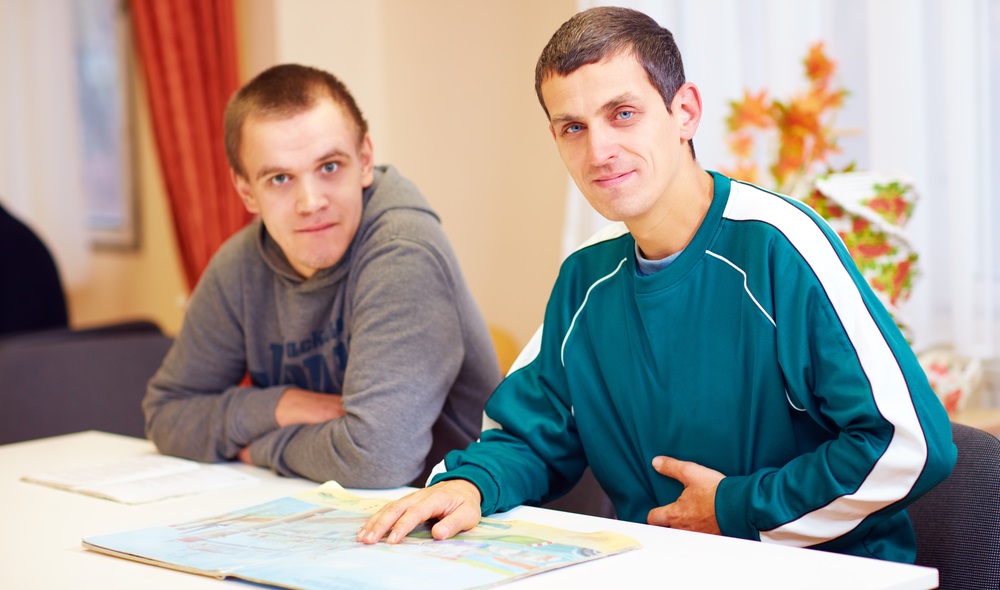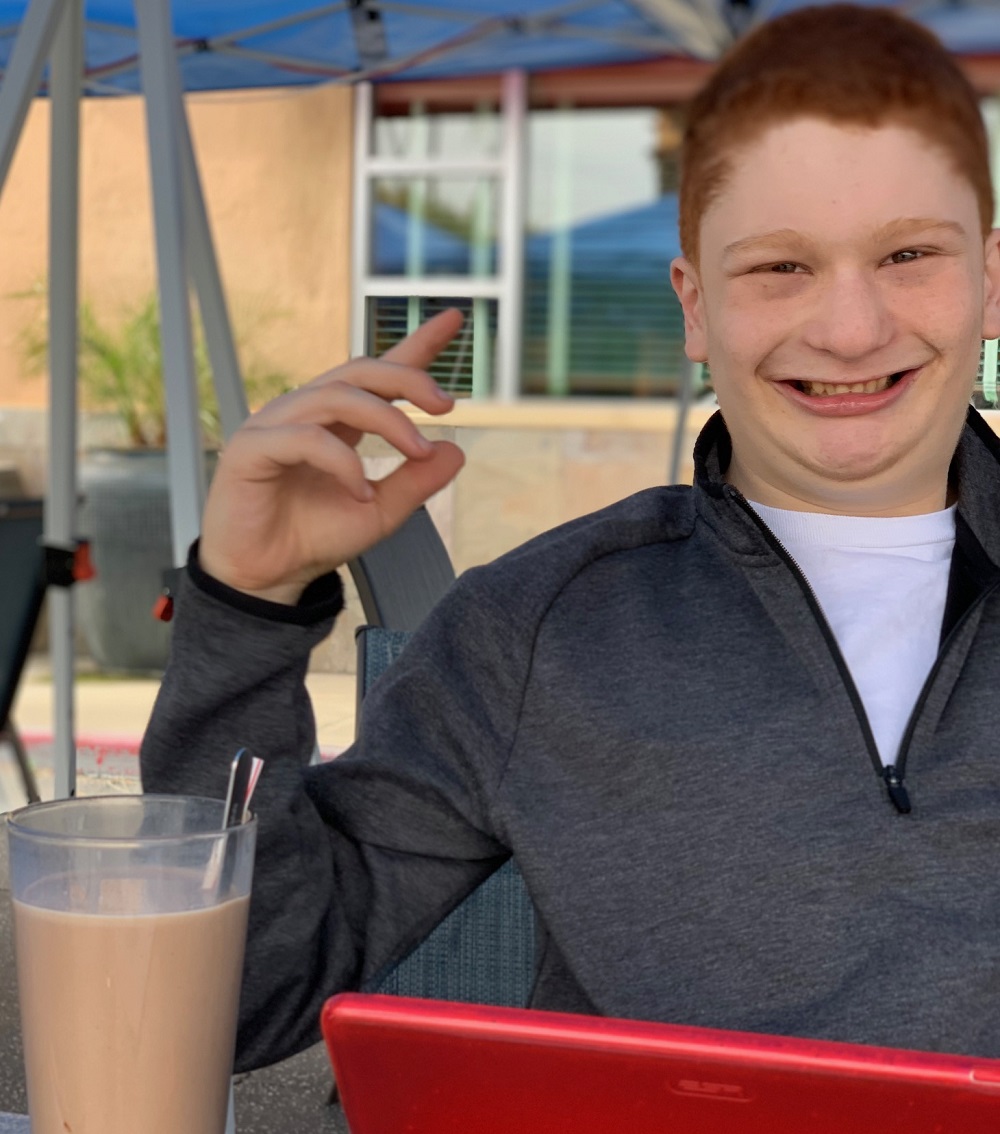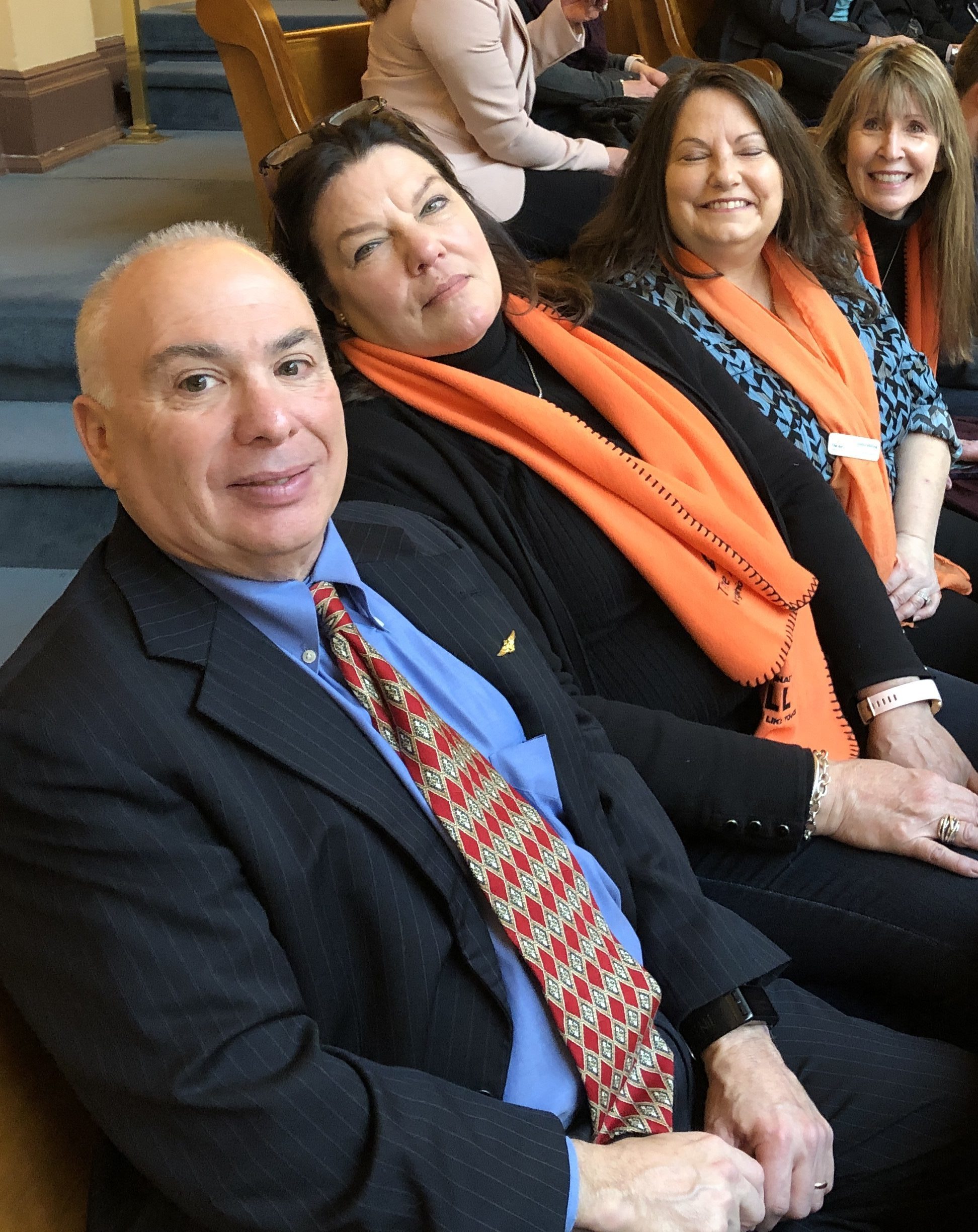 OLESIA BILKEI/SHUTTERSTOCK
OLESIA BILKEI/SHUTTERSTOCK
As his mother sees it, 16-year-old Nate Nemhauser’s main takeaway from sex education class back in fifth grade was that “girls lay eggs like chickens.”
 “That is the entire extent of his formal sexual education,” Rachel Nemhauser, of Bellevue, Wash., said of her high school sophomore, who is autistic and cannot read or write. “That worries me — since he has a girlfriend he’s interested in being intimate with.”
“That is the entire extent of his formal sexual education,” Rachel Nemhauser, of Bellevue, Wash., said of her high school sophomore, who is autistic and cannot read or write. “That worries me — since he has a girlfriend he’s interested in being intimate with.”
The younger Nemhauser also has a hard time saying words that others readily understand. He spends most of the day in a life skills classroom where, among other supports and allowances, he gets frequent breaks from intensive special education lessons that are tailored for him and his classmates; wiggle cushions, mouth inserts and other tools that help refine their motor skills, ability to chew and such; and special notebooks, pointers and other aids that help them communicate.
But when he took sex education in a classroom with students who didn’t have disabilities, the boy didn’t get a simplified version of the curriculum, containing images he easily understood, his mom said. She’s made her own efforts to school him about puberty, his body and sexual relations. But she’s unsure how much he’s able to absorb.
Higher Risks of Being Sexually Abused

Rachel Nemhauser
16-year-old Nate Nemhauser at his computer.
The authors of “Cripping Sex Education,” published in May 2020 in the journal Sex Education, suggested that sexual health information often is inaccessible and inappropriate for people with disabilities, and that their particular experiences and desires aren’t taken into account. The implications of not receiving sex education fitting their needs and abilities can be “wide-ranging and profoundly negative,” the authors wrote.
That information gap increases their risks of being sexually assaulted or abused, researchers added. Youth and young adults with developmental and/or intellectual disabilities such as autism, cerebral palsy and Down syndrome also have unplanned pregnancies, contract sexually transmitted diseases and are sexually assaulted at higher rates than people without disabilities.
In 2018, National Public Radio reported, as part of a year-long investigation, that people with intellectual disabilities were sexually assaulted at a rate more than seven times that of people without disabilities.
According to the latest data from the National Crime Victimization Survey, an average of 59,000 adults with disabilities are raped or sexually assaulted each year. Estimates show that about half of all adults with cognitive disabilities, which prevent them from readily receiving, processing and understanding everyday information and knowledge, will experience 10 or more sexually abusive incidents in their lifetime.
How a Youth with Disabilities Was Convicted of a Sex Crime
People with disabilities also risk getting caught up in the criminal justice system. In 2011, Legal Reform for the Intellectually and Developmentally Disabled Co-founder and President Brian Kelmar’s then 18-year-old son, who has autism and other disabilities, was sentenced to 10 years on probation and placed on Virginia’s list of violent sexual predators. He’d been convicted of two counts of “consensual sex with a person who is between the ages of 13 but less than 15.”
Text messages from the then 13-year-old girl involved in that case were submitted as evidence while the son’s case was being adjudicated. The texts showed that she was the aggressor. One thread read thusly:
(She): wake up
(He): I’m been up
(She): Oh hey. 🙂
(He): Hi
(She): i like you … and if we cant date … can we be friends with benifits
Also submitted as evidence was how Kelmar’s son’s auditory disability makes him process what he hears at a slower-than-normal pace. And because of his sensory processing disability, he is so easily overwhelmed by certain background noises, light, sound, smells and touch that he sometimes shuts down and silences himself.
His son’s replies to the girl’s texts were short words, along the lines of, “huh, what, um,” the father said.
At one point, the girl asked, “You really don’t understand what I am talking about?” Kelmar added.
“No, I do not,” the son texted.
While in high school, what Kelmar’s son mainly gleaned from a sex ed class was that sexually active people were supposed to wear condoms and avoid getting a sexually transmitted disease, said Kelmar, who launched his organization for people will disabilities in May 2016.
If his son had received sexual health information designed to help students like him absorb those facts, he might have known the dangers and inappropriateness of what was happening with that girl and sought help to stop it, the father said.
Though his son was granted a decade of probation instead of 10 years behind bars, he developed post-traumatic stress disorder as a result of the experience with the legal system, his father said. Even answering the door or getting an unknown phone call can trigger his son’s extreme anxiety, Kelmar said.
Virginia’s Recently Enacted Sex Ed Law for People with Disabilities

Co-founder and President Brian Kelmar, with other members of Legal Reform for the Intellectually Disabled, in the gallery of the Virginia General Assembly.
People with disabilities often can’t pick up on social cues, Kelmar continued. They interpret things literally, and often need instructions repeated over and over. “They are not going to pick up all of the socially accepted norms during a two-week course given in middle school and high school,” said Kelmar, whose organization crafted a Virginia law mandating that sex ed be tailored for students with federally mandated individualized education plans. Commonly referred to as IEPs, they’re drafted for kindergarteners through 12th-graders with diagnosed disabilities.
The new law, which Virginia Gov. Ralph Northam signed in July 2020, requires the state’s Department of Education to establish IEP guidelines ensuring age- and developmental- appropriate instruction about sexual health, self-restraint, self-protection and respect for others’ personal privacy and boundaries.
Virginia isn’t the only state with such a law. Back in 2009, Oregon began requiring public schools to teach comprehensive and inclusive sex education, including for students in special education.
Kelmar and members of his organization are working with legislators in Connecticut, Illinois, Maine, Nebraska and Texas to introduce similar bills in those states. They hope, eventually, to have a similar measure introduced in Congress so that all states must offer sex ed tailored for students with disabilities.
Meanwhile, Barriers Persist
A prevailing stigma is that people with disabilities are not sexual beings. That’s partly why some sex ed programming doesn’t focus on preventing abuse, observers said.
Nor does that programming acknowledge that young people with disabilities have the same right to receive sex education as their peers without disabilities.
“Sexual Health Education for Individuals with Disabilities: A Call to Action,” published in the American Journal of Sexuality Education in December 2017, lists several barriers that keep people with disabilities from accessing sexual health information that’s relevant to them:
— A lack of teacher education programs.
— A lack of teacher knowledge and confidence resulting in concern, anxiety and fear among teachers.
— Parental anxiety and fear.
— Insufficient school/teacher and parent partnerships.
— A lack of valid and reliable sexual health education.
— A lack of federal funding for comprehensive health education specifically designed for students with disabilities.
Tearing down those barriers requires systemic change, Anna Treacy, a University of Nevada School of Education researcher and professor, and one of the study’s co-authors, wrote in that call to action. “The topic of sexual health needs to become overt and not covert,” Treacy wrote.
Healthy Sexual, Non-sexual Relationships
Sex education isn’t just about sex; it’s also about how to best build and navigate non-sexual relationships, said Francis Tierney, manager of the healthy relationship program at The Arc of King County, in Seattle.
“When we are talking about sex education, we’re talking about consent, conflict-resolution, interpersonal skills, and social and emotional intelligence,” Tierney added. “Because my students haven’t received comprehensive sexuality education before coming to me as young adults, I’m often doing catch up. I’m often teaching principles of sex ed that we teach elementary-age kids.”
When her son is older, Nemhauser plans to enroll him in the program for 18- to 21-year-olds that Tierney runs. “Moving forward,” she said, “I’d like to know that he has a firm understanding of consent, safe sex, and how to enforce his own boundaries around his body.”



























